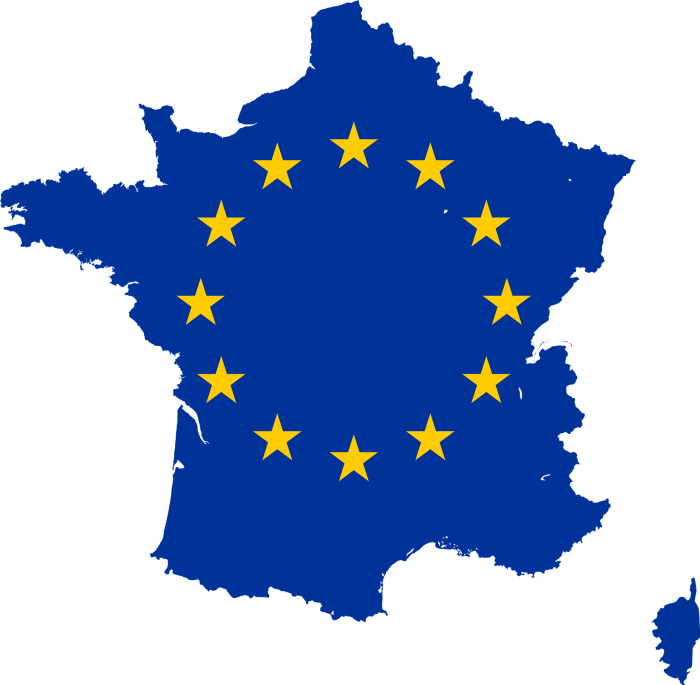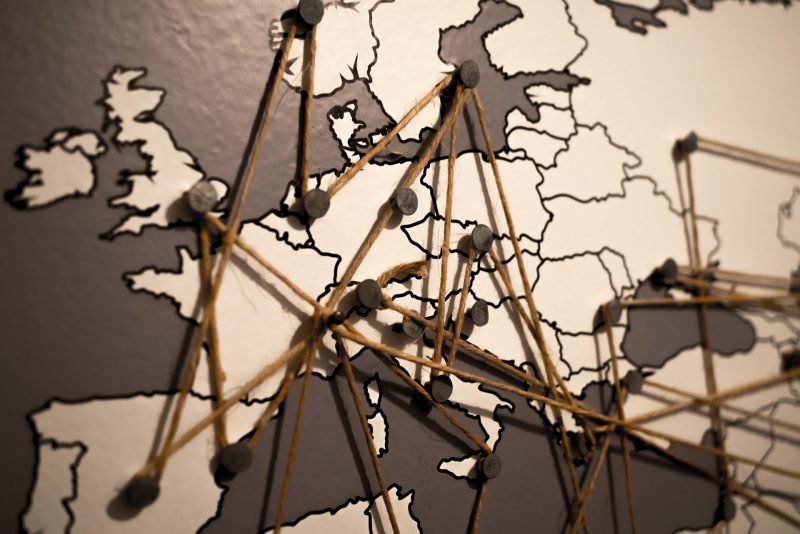It is not an exaggeration to say that with the upcoming French presidential election, the future of Europe hangs in the balance. To wit, Europe, not simply, not “just” the European Union, hated neoliberal juggernaut to some and hated overreaching government without legitimacy or legitimation to others. It is not an exaggeration to say that peace hangs in the balance.
Marine Le Pen and the Le Penites the world over seek to return us to protectionism, high nationalism, and generally a much rougher world scene under the banner of base appeals to pride and pages from the playbook of populism. This is not uncharted territory. This is the playing field of nineteenth and twentieth century European history until the founding of what was to become the European Union. I am not being coy. I am not being dramatic. The simple truth is that Europe, the continent to bring forth two world wars, the only world wars, within the space of a generation, has for the most part known unprecedented and luxurious peace for over seven decades.
The difference is the EU. It’s a maddeningly stubborn thing, a creature sui generis without precedent and without comparison. It is of itself and it’s far from perfect, but perfect is not a real world expectation. Not for a construct that affects more than 500 million people. But it is the thing that today and tomorrow guarantees peace amongst the many small nations and small interests of a famously war-torn mass of land.

The French left and center-right have done their damnedest to make this election easy for Le Pen, the candidate of tempered fascist rhetoric. Though there is trouble brewing, again, for the right-wing candidate, her chances are real, and the potential consequences of a Le Pen presidency are most dire. So this is not the time for fights among those in the center and on the left. The simple call to arms is this: the center must hold. The center must hold. If it does not, the star-crossed galaxies of perceived national interest and us-against-themism will spiral ever farther apart.
What starts as a Brexit-like protest against regulation and against big money and against the ever-scary other that one thinks has taken up too much room in our midst knows only one trajectory: toward the tiny, the petty, the spiteful. That way, and may I be forgiven the broad strokes necessary here, history has demonstrated, lies conflict, lies chaos and suffering, death. What peace, you may say, are we defending? A peace in which so many still do not have a voice, and in which unfairness persists on all too many levels? This is a pertinent question, but a question that can only be asked at a time of relative comfort. With peace, we may not have everything. Without peace, we have so much less.
The French election, and its upcoming counterpart in Germany, will decide the fate of the European Union. They will mean the difference between continued peace and resurgent war. Not today, perhaps, not in the next year, or two, or even longer. Eventually, however, if the EU withers, so withers an understanding of what is possible and impossible between the nations that comprise it, and that can be only for ill. Eventually, these nations well may return to the ultranationalist templates, to patterns of force and friction that for thousands of years reigned supreme. If that is the case, we will record these seventy-odd years as a fluke, a naively happy reprieve from the inevitable darkness. As a historian and as a citizen, this is not a story I am eager to one day write.
In terms of real choices, it’s true, the alternative candidates may not be to your liking, in this election or really any election. But for the sake of hundreds of millions, there are enemy’s enemies to be befriended, temporarily, to not run the ship aground. If your job is to swallow a frog, Mark Twain once philosophized, it’s best to eat it early in the morning. Morning is nearing. As voters and as citizens, wherever we stand, we all have a job to do: to hold the center. The center must hold.


1 Comment